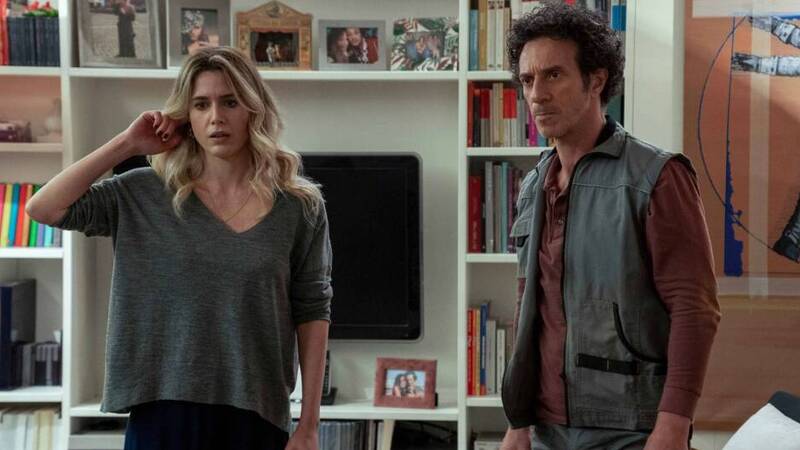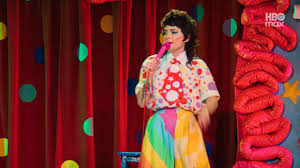Incastrati Review 2022 Tv Show Series Cast Crew Online
Early January, inside day. In an unspecified time of post-prandial gastric disposal, someone (difficult to be more precise on these festive days) tells you that Ficarra and Picone have made their first TV series: Incastrati (from January 1st on Netflix). “You will understand,” nchi. “Yes, but it’s on Netflix and it’s a crime,” they insist. And there, in that abstruse association between foreign bodies (Ficarra and Picone + Netflix + crime), your mind remains – she yes – stuck, giving you an unhealthy futurist fantasy. You are convinced that you will see, say, a Gomorrah of laughter or The Godfather in LOL version: something absolutely hilarious, original, which deconstructs the yellow genre opening new narrative frontiers. Instead, the serial debut of Ficarra and Picone is nothing more and nothing less than what they have always done: a light, clean light comedy that replicates the well-established formula of their films.
In Incastrati Ficarra and Picone in fact play two television technicians, who in addition to being colleagues are also friends and relatives: Salvo married Valentino’s sister, Ester (Anna Favella). The latter, on the other hand, still lives with his mother: a former school teacher who tends to reject all the suitors of their children, primarily his brother-in-law Salvo. The two spend their days between one technical intervention and the next and, on the way, Salvo insists on updating the disinterested Valentino on the developments of the TV series The Touch of the Killer: a very long crime, now in its eighth season.
And guess what happens? The two find themselves stuck in a real crime, after they find a corpse in an apartment, freshly killed (to put it in Montalbano’s style): it is the man who had called them to fix the TV. Here, more or less this is the plot whose declination takes place under the banner of the comedy of misunderstandings: in short, many greetings to my forbidden dream of seeing a Gomorrah of laughter. On the other hand it was just my desire, moreover the result of the festive culinary marathons, not that of Netflix whose mission seems to look in the opposite direction: to exploit Ficarra, Picone and all the imagery that they carry with them to create a wide product, able to attract the general public in the Streaming Kingdom.
For some time, in fact, Netflix has decided to bet not only on excesses like the Baby (which, however, damn if it was original …) to run and excel even on the same ground as generalist TV . He scored a few good goals, like with the teen drama Summertime, the guilty pleasure Astronomical guide for broken hearts and… sorry, honestly, nothing else of epoch-making occurs to us. The real question therefore is not whether Stuck is a good TV series but whether it is really the right series for Netflix. Why should the general public migrate to the platform to see products that, under other titles and with other interpreters, are more or less similar? Wouldn’t the flicker, the breaking of the mold, the pushed experimentation premiere instead more? To say, a lot of people have taken a peek at Squid Game, if only to avoid being excluded from social debates that go beyond vaccines. Now, I certainly don’t want to argue that we should dish up an Italian-style squid game (I’m a dreamer, ok, but up to a certain point) but I simply point out that narrative courage pays off, both in small and large doses.
Instead, the impression is that Incastrati is a well-executed homework: it is in the tradition of the two Sicilian comedians, it makes no concessions to vulgarity or cynicism, it deploys good actors (one above all, Domenico Centamore aka the Piccionello di Makari) and does not steal from us. not too much existential time because the episodes are six, each under half an hour. But nothing more. The comedy is also very subjective: to say, if you don’t love the irony of the two Sicilian comedians, you risk getting bored discreetly by watching Incastrati.
The narrative pace isn’t exactly adrenaline-pumping. To slow down is the same mixture of genres: the classic misunderstandings can rise to a narrative (enjoyable) turn in a comedy; in a crime, which thrives on twists, no, on pain of predictability. Finally, allow me a reflection on the ending. Without spoilers, the story does not close, the accounts do not add up and the incongruity that was obvious from the start is promoted to a great enigma to be solved next season. Perhaps it is yet another irony about the world of Netflix: all the while, Ficarra and Picone mock the platform in a good-natured but on-point way, rattling off jokes about TV series and binge watching patients.
The “non-final” could therefore be framed as a comic provocation to denounce the monstrous length of the TV series that play to keep us on a tightrope for millennia. It is also always useful to keep a small door open for any renewals. Too bad that here it is a wide open door for trucks and trucks. The problem is that the open ending doesn’t work very well in thrillers: if you make a drama or a comedy, you can take refuge in the very paraculous explanation in the style of “we don’t want to give answers, we let the viewer decide the ending of the story”, but if you do a crime this alibi does not hold. In short, Ficarra and Picone want to frame the public. Especially the generalist one. Who knows if they will succeed .




